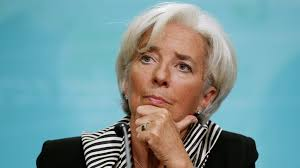Europe’s Payments Awakening: Can the Continent Break Free from the Card Giants?
- Marketing Team Compaytence
- May 5, 2025
- 3 min read
Compaytence Global Payments Brief – April 14, 2025

For decades, Visa and Mastercard have enjoyed an unchallenged reign across Europe’s payments landscape. In 2023 alone, these two American powerhouses processed more than €7 trillion in transactions—leaving European leaders to quietly ask: What happens if this dominance becomes a liability?
Now, that quiet question is becoming a rallying cry.
From Brussels to Frankfurt, policymakers are waking up to what they see as a strategic vulnerability—one that’s left the EU heavily reliant on non-European payment rails. And while the ambition to build a homegrown alternative has long existed, no project has yet succeeded in replicating the scale, ubiquity, or seamless experience offered by Visa and Mastercard. Initiatives like PayFair and the Mon net Project barely made it past the starting gate.
Still, momentum is building again.
More Than Just Payments: A Push for Sovereignty and Economic Return
At the heart of this push is not just consumer choice—but financial independence. The European Central Bank is championing the idea that the EU must be able to process its own transactions, on its own terms. ECB President Christine Lagarde recently made headlines, saying, “Visa, Mastercard, PayPal, and Alipay are all controlled by American or Chinese companies. We should make sure there is a European offer.”

The stakes? High. Lagarde and others believe a successful alternative could eventually unlock up to €3 trillion in annual economic value for the EU—by reclaiming transaction fees, boosting local fintech innovation, and protecting merchants from the high cost of cross-border card fees.
It's not just about economics, either. There’s a geopolitical undercurrent to all of this. With recent U.S. trade policy discussions—including renewed tariff threats under the Trump administration—Europe is increasingly wary of relying so heavily on American-controlled infrastructure. In an era where politics can directly impact payments (as we saw when Visa and Mastercard pulled out of Russia), reducing foreign dependency is now seen as a strategic priority.

Enter Wero: Europe’s Long Road to a Homegrown Network
This brings us to Wero—Europe’s latest bet in the race for payments autonomy. Developed under the European Payments Initiative (EPI), Wero is a pay-by-bank system that allows instant payments directly between consumers’ bank accounts, skipping card rails entirely.
The launch, however, has been slow and cautious. After quietly going live at select German banks last summer, Wero is now expanding to Belgium and France, backed by 16 major institutions including BNP Paribas, Deutsche Bank, and Worldline. Its roadmap is ambitious: person-to-person payments in seconds, cross-border transactions, QR-code checkouts, and in-store capabilities—all without a card.

But let’s be clear: this is still very much a work in progress. Europe has yet to prove that Wero—or any similar system—can gain traction across such a fragmented payments ecosystem. Visa and Mastercard’s dominance is sticky for a reason: they’re accepted everywhere, reliable, and already embedded in global commerce. Displacing them won’t happen overnight.
Still, consumers are showing a growing openness to pay-by-bank options—especially as merchants look to cut card processing fees. And if Wero can crack usability and merchant acceptance, it may offer Europe its first real shot at reshaping the status quo.
What This Means for Compaytence Clients
At Compaytence, we see this shift not as a sudden revolution—but as a gradual evolution in global payment flows. As Europe experiments with new rails and tighter oversight, global businesses must prepare for a more localized, fragmented, and competitive payment environment.
Whether you're selling into the EU, expanding across borders, or simply trying to reduce your fee exposure, now’s the time to start diversifying your payment stack. From open banking solutions to B2B net terms platforms like Trevipay, we help clients design agile, future-ready checkout experiences that can flex with shifting regulations and consumer habits.
Want to stay ahead of Europe’s payments curve? We’re here to help you build smarter, leaner, and more resilient payment strategies—one market at a time.




Comments